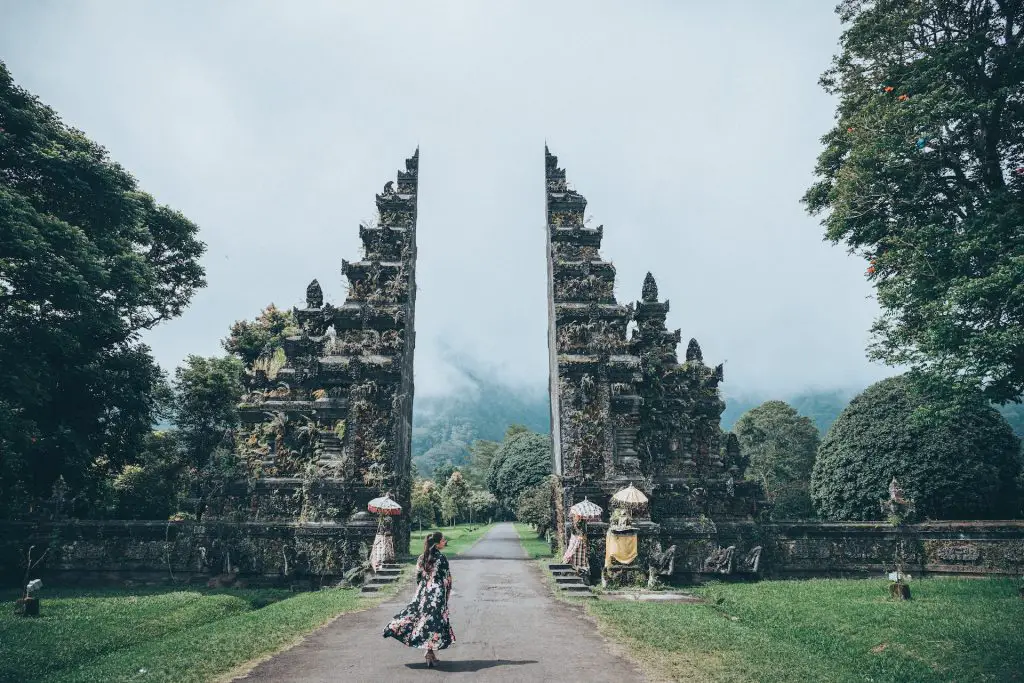In recent years, there has been a notable shift in the way people approach travel. While traditional vacations often revolved around indulgence and relaxation, today’s travelers are increasingly seeking experiences that prioritize their well-being and health. This shift has given rise to the intersection of the wellness and travel industries, where individuals are no longer content with simply going on a holiday; they want to return from their travels feeling rejuvenated, both physically and mentally. In this article, we will explore how the wellness industry is transforming the travel sector, shaping the way we plan, experience, and remember our journeys.
The Wellness Travel Phenomenon
Wellness travel, also known as wellcation or wellness tourism, is a rapidly growing segment of the global travel industry. It encompasses a wide range of experiences, from yoga retreats in Bali to hiking expeditions in the Swiss Alps, spa getaways in Thailand, and mindfulness meditation in the Himalayas. What sets wellness travel apart from traditional tourism is its focus on holistic well-being. Travelers are seeking to improve their health, relax, de-stress, and reconnect with themselves during their journeys.
This trend is driven by several factors. Firstly, our modern lifestyles often lead to stress, sedentary behavior, and unhealthy eating habits. People are increasingly recognizing the need to take a break from their busy lives and prioritize self-care. Secondly, social media has made travel experiences highly shareable, and the desire to post Instagram-worthy pictures from exotic destinations has led many to seek out unique and health-oriented travel experiences. Finally, the wellness industry itself has grown significantly in recent years, with consumers spending more on products and services that promote health and well-being.
Wellness Travel Experiences
Wellness travel experiences can take various forms, catering to a wide range of preferences and interests. Here are some examples of how the wellness industry is transforming the travel sector:
Spa Retreats: Spa retreats are a classic example of wellness travel. They offer a range of treatments, including massages, facials, and hydrotherapy, aimed at promoting relaxation and rejuvenation. Destinations like Bali, Thailand, and the Maldives have become renowned for their luxury spa resorts.
Yoga and Meditation Retreats: Yoga and meditation retreats are popular among those looking to improve their mental and spiritual well-being. These retreats often take place in serene natural settings, such as the mountains or the beach, providing a peaceful environment for introspection and mindfulness.
Adventure and Nature-Based Wellness: Some travelers seek wellness through outdoor activities like hiking, biking, or kayaking. Exploring natural landscapes can be not only physically invigorating but also mentally refreshing. Destinations like Costa Rica, New Zealand, and Iceland are known for offering such experiences.
Culinary Wellness: Food plays a crucial role in well-being, and culinary wellness experiences focus on healthy eating and mindful cooking. Travelers can explore local cuisines, participate in cooking classes, and learn about the nutritional benefits of various foods.
Digital Detox Retreats: In our hyper-connected world, many people are looking for ways to disconnect from screens and devices. Digital detox retreats offer a break from technology, allowing travelers to reestablish a healthier relationship with their digital lives.
Mindfulness and Spiritual Journeys: Some wellness travelers seek spiritual enlightenment and personal growth through experiences like Vipassana meditation retreats in India or exploring ancient temples in Japan.
Wellness Cruises: The cruise industry has also embraced wellness, with ships offering fitness centers, healthy dining options, and on-board activities like yoga and meditation classes.
The Business of Wellness Travel
The growing demand for wellness travel experiences has not gone unnoticed by the travel industry. Many hotels, resorts, and tour operators are now incorporating wellness elements into their offerings. This includes everything from providing organic and locally sourced cuisine to offering fitness classes, spa services, and wellness-focused activities.
Luxury hotel chains like Four Seasons and Ritz-Carlton have introduced wellness packages that cater to health-conscious travelers. Boutique hotels with a focus on mindfulness and sustainability are also on the rise, providing unique experiences for guests seeking wellness during their stays.
Moreover, travel agencies and online platforms are now specializing in wellness travel, curating itineraries and packages that align with travelers’ wellness goals. These agencies often work with wellness experts and local practitioners to provide authentic and transformative experiences.
The Impact of Technology
Technology has played a significant role in the transformation of the travel and wellness industries. Mobile apps and websites now make it easier for travelers to discover and book wellness-focused accommodations and experiences. Wellness travel apps often include features such as mindfulness meditation guides, fitness trackers, and healthy recipe recommendations.
Furthermore, technology has enabled virtual wellness experiences, allowing people to engage in yoga classes, meditation sessions, and fitness training from the comfort of their hotel rooms or homes. This has become especially relevant in the context of the COVID-19 pandemic when travel restrictions limited physical travel.
Sustainability and Wellness
Sustainability is another key element of the wellness travel movement. Travelers are increasingly mindful of the environmental impact of their journeys and seek eco-friendly and sustainable options. Wellness travelers often choose destinations and accommodations that prioritize environmental responsibility, such as eco-lodges in the rainforest or retreat centers powered by renewable energy sources.
Many wellness retreats also incorporate sustainability into their programs, teaching guests about the importance of preserving the natural beauty and biodiversity of the places they visit. Activities like tree planting, beach cleanups, and wildlife conservation projects are becoming common components of wellness travel experiences.
Challenges and Considerations
While the wellness travel sector is thriving, it’s not without its challenges. One of the primary concerns is the potential for greenwashing, where businesses market themselves as wellness-focused or sustainable without genuinely embodying these principles. Travelers must be discerning and research their options carefully to ensure they are aligning with their wellness and sustainability goals.
Additionally, wellness travel can sometimes come with a hefty price tag, making it inaccessible to everyone. As the industry continues to grow, there is a need for more affordable wellness travel options to ensure inclusivity and accessibility.
The wellness industry’s influence on the travel sector is undeniable. Travelers today are no longer content with simply exploring new destinations; they want their journeys to be transformative and enriching experiences. Wellness travel offers a way for individuals to prioritize their physical and mental well-being while exploring the world.
As the wellness and travel industries continue to evolve and intersect, we can expect to see more diverse and innovative wellness travel experiences. Whether it’s practicing yoga on a mountaintop, indulging in a spa day by the ocean, or embarking on a digital detox in the wilderness, wellness travel has become a powerful vehicle for personal growth, self-discovery, and rejuvenation. Ultimately, it is a testament to our collective desire to live healthier, more balanced lives, even when we are far from home.
The Future of Wellness Travel
Looking ahead, the wellness travel sector is poised for further growth and innovation. Here are some key trends and developments to watch for:
Personalization: The future of wellness travel is all about personalization. Travelers will increasingly seek tailored experiences that align with their specific health and wellness goals. From personalized fitness routines to customized dietary plans, the industry will continue to cater to individual preferences.
Integrative Health: Wellness travel will move beyond spa treatments and yoga classes to embrace a more holistic approach to health. Integrative health resorts will offer a range of services, including naturopathy, acupuncture, Ayurveda, and other alternative therapies.
Mental Health Focus: As awareness of mental health issues grows, wellness travel will increasingly address emotional well-being. Retreats and programs focused on stress reduction, mindfulness, and emotional resilience will become more prevalent.
Community and Social Wellness: While wellness travel often emphasizes individual well-being, there is a growing interest in group experiences that foster a sense of community and social wellness. Group retreats, workshops, and wellness cruises provide opportunities for travelers to connect with like-minded individuals.
Sustainable Wellness: Sustainability will remain a critical consideration in wellness travel. Eco-friendly accommodations, carbon-neutral travel options, and responsible tourism practices will continue to gain prominence.
Virtual and Augmented Reality: The integration of virtual and augmented reality technologies will allow travelers to have immersive wellness experiences even when they can’t physically travel. Virtual wellness retreats and guided meditation experiences will become more sophisticated and widely accessible.
Wellness Certification and Standards: As the industry grows, there will be a greater emphasis on establishing standards and certifications for wellness travel providers. This will help travelers make informed choices and ensure that they receive genuine wellness experiences.
Accessibility: Efforts to make wellness travel more accessible will expand. This includes offering more budget-friendly options, creating inclusive experiences for travelers with disabilities, and expanding wellness travel to a broader range of destinations.
Wellness in Transit: Airlines and airports are also recognizing the importance of wellness in transit. Expect to see more airports offering meditation rooms, healthy dining options, and exercise facilities. Airlines may introduce in-flight wellness programs and amenities to enhance passenger comfort.
Wellness as a Lifestyle: Wellness travel is just one aspect of a broader trend towards wellness as a lifestyle. People are integrating wellness practices into their daily routines, from healthy eating to exercise and mindfulness. This shift is likely to continue driving demand for wellness-focused travel experiences.
In conclusion, the wellness industry’s influence on the travel sector is not just a passing trend; it’s a transformation that reflects a fundamental shift in how we approach leisure and self-care. Wellness travel has become a means of nurturing our bodies and minds, promoting balance and self-discovery, and connecting with the world in a more meaningful way. As the industry continues to evolve and diversify, travelers can look forward to an exciting array of wellness experiences that cater to their individual needs and desires. Whether it’s a rejuvenating spa retreat, an adventurous outdoor expedition, or a transformative mindfulness journey, wellness travel is here to stay, offering a path to greater well-being, wherever the road may lead.







